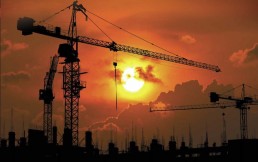NCC 2016 Amendment 1 – Effective from 12 March 2018
The amended NCC 2016 Volume 1 will address fire safety in high rise buildings, including fire safety related to the combustibility of external walls. It will also be accompanied by a new guidance material, Evidence of Suitability Handbook 2018 and a revised Advisory Note ‘Fire Performance of External Walls and Cladding”
The changes will bring greater clarity around the Code’s requirements and its intent, particularly in regard to the deemed to satisfy and evidence of suitability provisions.
These amendments include the:
- Introduction of a new verification method;
- Revision of evidence of suitability provisions;
- Clarification of various fire safety provisions; and
- Greater stringency for sprinkler protection of balconies
New Verification Method (CV3)
CV3 will be introduced for testing of external wall assemblies for fire propagation. CV3 references a new testing standard, AS 5113-2016 “Fire propagation testing and classification of external walls of buildings”. Additional measures for fire safety will also be required:
- Type A buildings must have sprinkler protection to balconies, patios and terraces
- Buildings with an effective height greater than 25m require monitored stop valves to be provided at each floor level to allow for isolation
- Sprinkler systems must be capable of providing sufficient flow to each floor level and the level above
- Type‐B buildings must be sprinkler protected and any openings in external walls are to be separated by:
- Horizontal construction (slab or other)
- Projecting outwards 1100 mm
- Extending a minimum of 450 mm beyond the openings concerned; and is non-combustible with an FRL of not less than 60/60/60.
Evidence of Suitability Provisions
The 2016 NCC Amendment will include a new “Evidence of Suitability Handbook” with a framework and a decision-flow chart to assist in the correct use of the Evidence of Suitability provisions of the NCC.
Furthermore, there is a renewed focus on suitable materials, products, forms of construction and design being “fit for purpose for which it is intended”, whereby the product will be ‘fit’ if it is both:
- Supported by evidence of suitability; where Forms of Evidence has been clarified as:
- Appropriateness of evidence
- Requirements for evidence to comply with the ABCB protocol
- Requirements for evidence submitted.
- Constructed in a suitable manner.
View the changes as provided by ABCB : Summary of Changes
View the summarised list of amendments : NCC2016-BCA-Volume-One-List-of-Amendments
If you would like to seek further clarity on these changes, please contact your Registered Building Surveyor
Related Posts
February 9, 2016
Timber Construction – Changes to the NCC 2016
Changes to the National Construction Code, effective 1 May 2016, will enable the use of timber…
April 27, 2016
Summary of changes to the NCC
The updated NCC brings significant changes to the industry including new General Provisions for…



